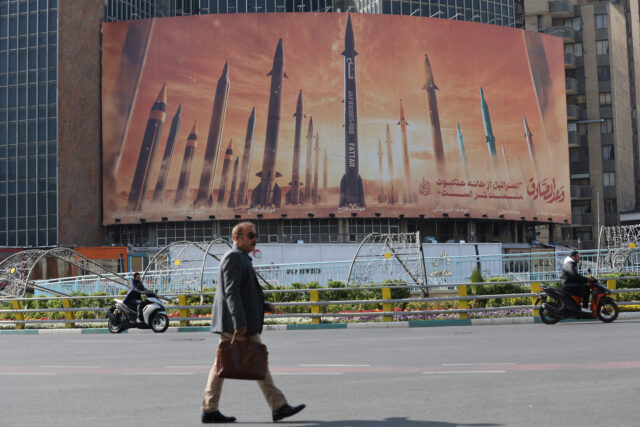JERUSALEM: Israel’s counterstrike for the weekend Iranian drone and missile attack will aim to send a message of deterrence to Tehran, a senior lawmaker said on Tuesday.
“We’ll have to react. Iranians will know we reacted, said Yuli Edelstein, who chairs the Knesset Foreign Affairs and Defence Committee. “And I sincerely hope that it will teach them a lesson that you can’t attack a sovereign country just because you find it doable,” he said.
“I hope they will understand that it’s not in their interest to continue this kind of exchange of blows,” he added. “We are not interested in a full-scale war. We are not in the business of revenge.”
Israeli considerations in planning a counter-strike include the war-weariness of Western powers, the risk to air crews from any sorties against Iran, and the need to focus on the more than half-year-long Gaza offensive.
Edelstein said targets were still being discussed. But “we always take always take into consideration the international norms” and Israel did not intentionally target civilians, he added.
The launch of hundreds of pilotless kamikaze planes, cruise missiles and ballistic missiles on Saturday night was the first direct assault on Israel by Iran. Most of the threats were downed by Israeli, U.S., British, French and Jordanian forces.
Israel used warplanes and high-altitude interceptors to fend off the Iranian salvoes. Edelstein said this cost “a huge amount of money” that was worth investing on self-defence. The Iranian barrage wounded an Israeli girl and caused limited damage to an airbase.
Iran described the barrage as retaliation for a Israeli strike on its embassy compound in Damascus which killed two of its generals and several officers. Israel has not taken responsibility for the April 1 attack.
A Channel 13 TV poll found 29% of Israelis support an immediate strike on Iran. Of the rest, 37% support attacking at a later date and 25% oppose such action.
(REUTERS)
In a career spanning three decades and counting, Ramananda (Ram to his friends) has been the foreign editor of The Telegraph, Outlook Magazine and the New Indian Express. He helped set up rediff.com’s editorial operations in San Jose and New York, helmed sify.com, and was the founder editor of India.com.
His work has featured in national and international publications like the Al Jazeera Centre for Studies, Global Times and Ashahi Shimbun. But his one constant over all these years, he says, has been the attempt to understand rising India’s place in the world.
He can rustle up a mean salad, his oil-less pepper chicken is to die for, and all it takes is some beer and rhythm and blues to rock his soul.
Talk to him about foreign and strategic affairs, media, South Asia, China, and of course India.





